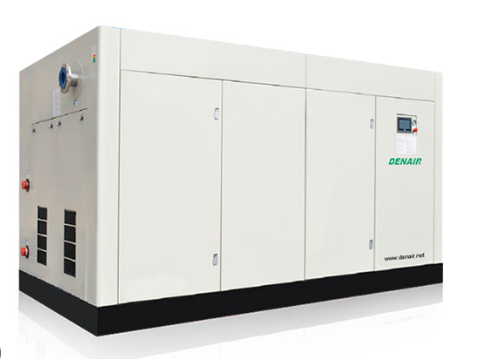Oil-free Air Compressor: Pros and Cons

Introduction
Oil-free air compressors have revolutionized various industries by offering clean, contaminant-free compressed air without the use of lubricating oil. This article explores the advantages, disadvantages, applications, and considerations Oil-free air compressor pros and cons associated with oil-free air compressors, providing a comprehensive analysis for professionals and stakeholders in engineering, manufacturing, healthcare, and more.
Advantages of Oil-free Air Compressors
1. Clean and Contaminant-Free Air: Oil-free air compressors are renowned for producing air that is free from oil contaminants. This purity is crucial in industries such as pharmaceutical manufacturing, food processing, and electronics, where any trace of oil can compromise product quality and safety.
2. Reduced Risk of Contamination: By eliminating oil from the compression process, oil-free compressors mitigate the risk of oil carryover into downstream equipment and products. This ensures compliance with stringent regulatory standards and enhances the reliability of critical processes.
3. Lower Maintenance Requirements: Oil-free compressors simplify maintenance routines significantly. Without the need for oil changes or monitoring oil levels, maintenance tasks are reduced, leading to lower operational downtime and decreased maintenance costs over the compressor’s lifespan.
4. Environmental Benefits: Oil-free compressors contribute to environmental sustainability by eliminating the disposal of oil-laden condensate and reducing carbon emissions associated with oil use. Their eco-friendly design aligns with corporate sustainability goals and regulatory requirements.
5. Suitable for Sensitive Applications: Due to their ability to deliver clean, oil-free air, these compressors are ideal for applications requiring high air quality standards, such as medical air systems, cleanrooms, and laboratory equipment.
Disadvantages of Oil-free Air Compressors
1. Higher Initial Cost: Oil-free air compressors typically have a higher initial investment compared to oil-lubricated models. This is due to their advanced engineering, specialized materials, and precision manufacturing required to maintain oil-free operation.
2. Potential for Reduced Lifespan: The absence of oil lubrication can lead to increased wear on certain components, potentially shortening the operational lifespan of oil-free compressors. Regular monitoring and preventive maintenance are essential to mitigate premature wear and ensure optimal performance.
Read also: What role does technology play in advancing global education, particularly in under-resourced areas?
3. Noise Levels: Oil-free compressors may operate at higher noise levels compared to oil-lubricated counterparts, particularly during high-demand cycles. Noise-reducing measures such as acoustic enclosures or vibration dampeners may be required to minimize workplace noise.
Applications of Oil-free Air Compressors
Oil-free air compressors find applications across a wide range of industries and settings, including:
- Healthcare: Used in medical air systems, dental clinics, and respiratory therapy equipment.
- Food and Beverage: Ensures contaminant-free compressed air for food processing, packaging, and storage.
- Electronics: Supports semiconductor manufacturing, printed circuit board assembly, and cleanroom environments.
Comparative Analysis: Oil-free vs. Oil-lubricated Compressors
A comparative analysis highlights key differences between oil-free and oil-lubricated compressors:
- Performance: Oil-free compressors offer clean air output but may have slightly lower efficiency ratings compared to oil-lubricated models.
- Maintenance: Oil-free compressors require less frequent maintenance but may have higher initial costs and potential for reduced lifespan.
- Environmental Impact: Oil-free compressors reduce oil disposal and emissions, aligning with sustainability goals.
Future Trends and Innovations
Continued advancements in oil-free compressor technology focus on enhancing performance, efficiency, and reliability. Innovations include advanced materials for improved durability, enhanced energy efficiency through variable speed technology, and integrated IoT capabilities for remote monitoring and predictive maintenance.
Conclusion
Oil-free air compressors represent a significant advancement in air compression technology, offering unparalleled benefits in terms of air purity, environmental sustainability, and operational efficiency. While they come with initial cost considerations and maintenance challenges, their critical role in ensuring clean, reliable compressed air makes them indispensable across various industries. As technology continues to evolve, oil-free air compressors are poised to play a pivotal role in shaping the future of compressed air systems globally.





